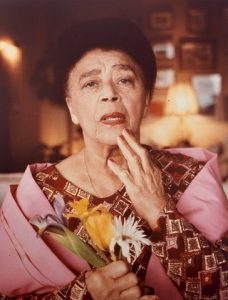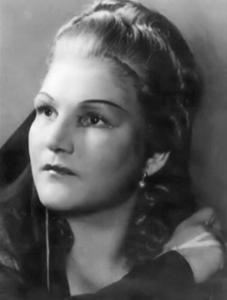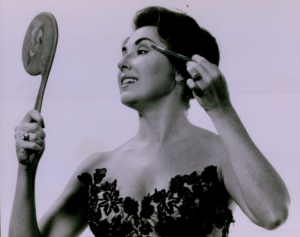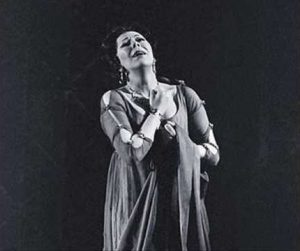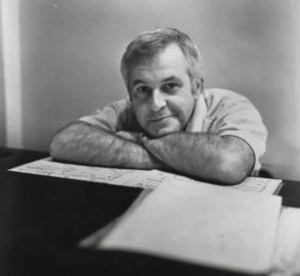Podcast: Play in new window | Download (Duration: 1:25:44 — 99.7MB) | Embed
Subscribe: Spotify | TuneIn | RSS | More
Welcome to Season Four of Countermelody! My long-time listeners know a few things things about the podcast. First, the most important quality in a singer is not voice, but communicative skills. Second, I have posted episodes in the past on singers that I dub “voiceless wonders,” artists whose primary virtue is exactly that ability to convey the meaning of the words. Third, though the music I play is primarily opera and so-called classical music, I often explore genres that move outside of those boundaries. Fourth, from the very beginning of my podcasting career, I have made it a point to highlight the careers of artists of color as well as queer artists. Throughout this season of the podcast, I will also be focusing on great singers in their later years. All these aspects are in evidence in today’s subject: Mabel Mercer (1900-1984), the doyenne of cabaret. Born to a teenage mother of Welsh heritage whose father was an itinerant African American musician, Mercer first pursued a career in British music hall. From there, she made her way to Paris, where she soon became a fixture at a nightclub run by her pal Bricktop (AKA Ada Smith). As WWII loomed on the horizon, she made her way, with the help of her friend (and possible lover) the wealthy and eccentric lesbian Joe Carstairs, to New York, where she soon established herself at the pinnacle of cabaret culture by virtue of her impeccable diction, intimacy of delivery, sense of story-telling, and unbounded repertoire of upwards of a thousand songs. Most of Mercer’s recordings represent the artist well into her middle age, when her once beautiful soprano voice had become little more than a croak. And yet, perched regally on a chair at the Café Carlyle and other nightclub venues, she gave definitive performances of nearly every song she touched. The episode offers a hint of the interpretive depth displayed in repertoire ranging from the traditional Great American Songbook (especially the songs of Cole Porter) through Joni Mitchell and Paul Simon. Guest artists heard include Kaye Ballard, Bobby Short, and Julie Wilson, as well as Bricktop and Madame Spivy, both nightclub hostesses and close friends of Mercer’s who were celebrated performers themselves.
Countermelody is a podcast devoted to the glory and the power of the human voice raised in song. Singer and vocal aficionado Daniel Gundlach explores great singers of the past and present focusing in particular on those who are less well-remembered today than they should be. Daniel’s lifetime in music as a professional countertenor, pianist, vocal coach, voice teacher, and journalist yields an exciting array of anecdotes, impressions, and “inside stories.” At Countermelody’s core is the celebration of great singers of all stripes, their instruments, and the connection they make to the words they sing. By clicking on the following link (https://linktr.ee/CountermelodyPodcast) you can find the dedicated Countermelody website which contains additional content including artist photos and episode setlists. The link will also take you to Countermelody’s Patreon page, where you can pledge your monthly support at whatever level you can afford. Bonus episodes available exclusively to Patreon supporters are currently available and further bonus content including interviews and livestreams is planned for the upcoming season.
